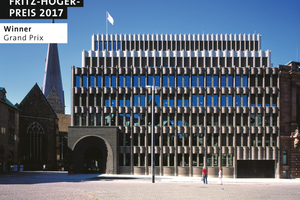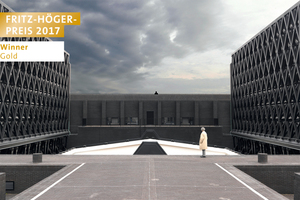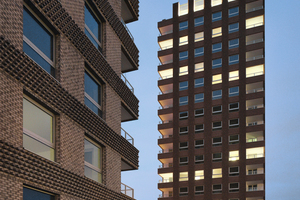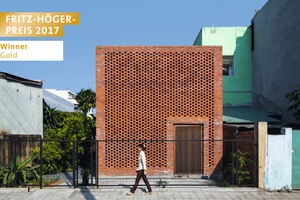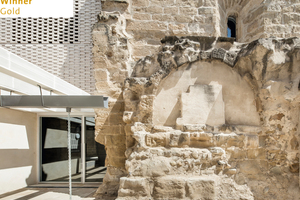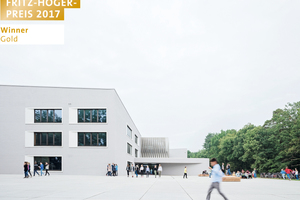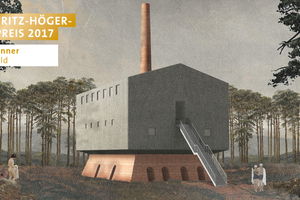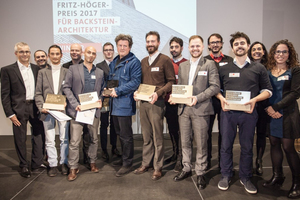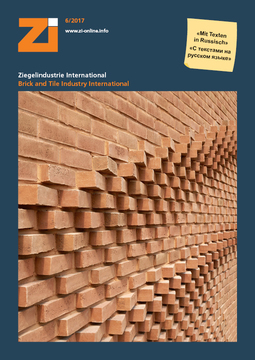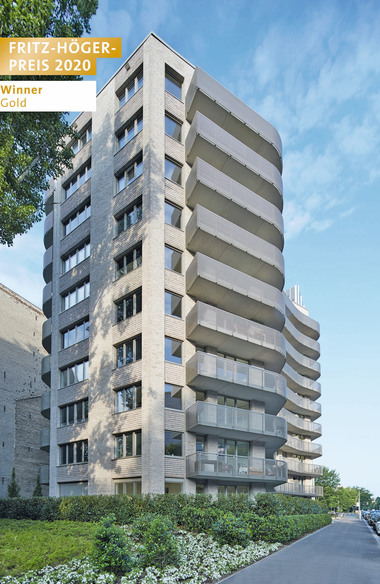Fritz Höger Awards 2017 – Grand Prix for Bremer Landesbank
The winning entries to this year‘s competition were announced before an international audience. Taking the Grand Prix Award for their new Bremer Landesbank headquarters building, Caruso St John Architects were the evening‘s big winners. Additionally, Fritz Höger Awards in gold and silver were bestowed in several specific categories, and a Special Mention award also was presented.
More than 600 projects submitted
With more than 600 submitted projects and great international resonance accompanying its fourth round of bestowals, the 2017 Fritz Höger Award for Excellence in Brick Architecture has become firmly established among the leading prizes for outstanding architecture. Once again, the entries constituted an impressive profile of international brick architecture.
Meeting in July, the jury‘s task of filtering out the best entries proved to be easier said than done – not just in terms of quantity, but also and in particular in view of the high architectural and professional-artisanal quality of this year‘s submissions. Following a two-stage procedure, the jury nominated over sixty finalist projects for the architecture prize, and the ultimate winners were then sought out of that pool. That included, of course, the winners of the Newcomer Award, which, conferred for the second time, again met with great acclaim.
Grand Prix winner (office and commercial buildings category): Bremer Landesbank, Caruso St John Architects
The new main office of Bremen‘s state bank near the cathedral in Bremen impressively demonstrates the full design potential of brick architecture. On the one hand, the project clearly testifies to its local roots, and on the other, it plays out the merits of clay masonry with rarely seen finesse. The building does no copying. With its 3D relievo-frieze façade of dark brick, it sets its own definite accents. Indeed, the façade communicates self-confidently with the surrounding public space, hence establishing its own, intrinsic identity. Thus, the Landesbank stands as a sort of redefinition of urban architecture within a historical context. With its excellent craftsmanship down to the last detail, it also constitutes an outstanding example of how good-looking superbly crafted modern urban architecture can be.
Winner in gold, public buildings: Gdańsk Shakespeare Theatre, Proteco Engineering s.r.l. and Renato Rizzi
This out-of-the-ordinary theatre self-assuredly occupies the Gdańsk cityscape, presenting its extraordinary architecture with clear focus on the employed material, i.e., the building is chiefly defined by its dark brick architecture. It is the little details that emphasize the building‘s powerful expression. The brickwork‘s implementation is extremely well accomplished, and the novel interior design plus the distinctive roof structure amplify the building‘s visual impact.
Winner in gold, residential buildings: Towers T5 & T6 on Westkaai, Antwerp, Tony Fretton Architects
The high-rise residential complex at the port of Antwerp convincingly shows what a contemporary residential tower can look like. It can even be regarded as a role model for future multi-storey residential construction projects. This building totally reinterprets the conventional definition of a residential tower. This high-rise is no ordinary tower block, but an open building. Its brick architecture helps the occupants identify with their locality, since the towers‘ building material blends well into the neighbourhood context.
Winner in gold, detached homes: Termitary House Da Nang/Vietnam, Tropical Space
This single-family home in Vietnam takes dealing with brick to a whole new dimension. The partially perforated brickwork façade wows passersby and sends a strong signal as to where the material can go from here. The diaphanous, porous wall is more than just a decorative structural element. It practically “breathes“ the house. Moreover, the brickwork is equally ponderable from within and without.
Winner in gold, renovation: Santa Maria de Vilanova de la Barca, Alea Olea architecture & landscape
The old Gothic church of Vilanova de la Barca in the Catalan city of Lleida has undergone a sensitive, progressive renovation and restoration. Its new interplay of historical fragments and modern brick architecture, partly in the form of latticework, is impressively successful. A dialogue between elements old and new, from the past and present, offers a strikingly manifest contrast between original and new construction.
Winner in gold, energy: Hessenwaldschule in Weiterstadt, wulf architekten
The new Hessenwald School in Weiterstadt stands as a shining example of modern, energy-efficient, high-quality German architecture. Insightfully executed in great detail, the school presents itself as a prime piece of pedagogical architecture geared to the requirements of modern learning and teaching. Its light-grey, washed, fair-faced masonry, riddled sun shading and conceptual structural clarity all underpin the positive overall impression.
Winner in gold, newcomers: Landbad Bordenau, Nick Chadde
This entry thematizes the conversion of an old brickyard into a new rural public swimming pool – and can be looked upon as an allusion to analogue architecture, because this project turned an existing object into something new and analogous. Both its sturdy external appearance and the visual impact of its design are concisely to the point. The location‘s qualities were well exploited in setting the mood for its conversion to a swim basin, as evidenced by the detail concept of its individual tiers.
Initiative Zweischalige Wand – Bauen mit Backstein
www.backstein.com

